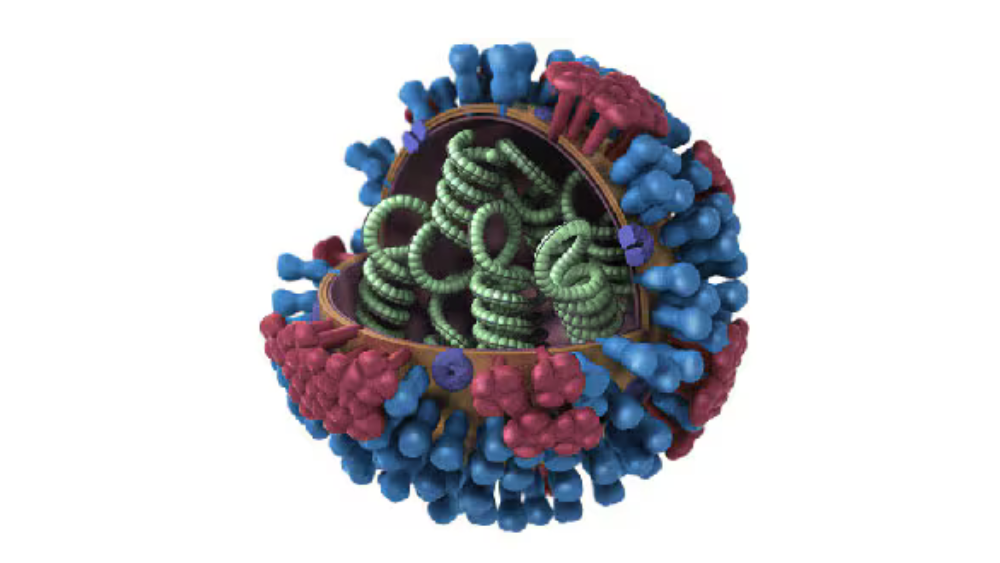
Misleading information about nutritional content
QUESTION
(a) the measures taken by the Ministry against practices of publishing/printing misleading
information pertaining to nutritional content and health benefits on the packets of edible food
items; and
(b) whether the Ministry has taken steps or plans to take steps in the light of recent Supreme Court
judgment on ethical marketing practices adopted by companies selling alternate medicines,
ayurvedic and natural products with claims of health benefits, if so, the details thereof?
ANSWER
THE MINISTER OF STATE, CONSUMER AFFAIRS, FOOD AND PUBLIC
DISTRIBUTION (SHRI ASHWINI KUMAR CHOUBEY)
(a) : The Food Safety and Standards Authority of India(FSSAI) has notified the Food Safety and
Standards (Advertising and Claims) Regulations, 2018 and the Food Safety and Standards (Labeling and
Display) Regulations, 2020 to ensure fairness in claims and advertisements of food products and to make
food businesses accountable for such claims/ advertisements so as to protect consumer interests.
According to sub-regulation 6 of regulation 4 of the Food Safety and Standards (Advertising and
Claims) Regulations, 2018 “the claim that a food has certain nutritional or health attributes shall be
scientifically substantiated by validated methods of characterising or quantifying the ingredient or
substance that is the basis for the claim”. Additionally, regulations 5 and 7 of the Food Safety and
Standards (Advertising and Claims) Regulations, 2018 provide prerequisites for making nutrient and
health claims respectively, ensuring accuracy and transparency in advertising food products.
The provisions for use of certain words or phrases (Natural, Fresh, Pure, Original etc.) are
specified under Schedule –V. The Food Safety and Standards Act 2006 (FSS Act, 2006) provided
various legal provisions for Offences & Penalties wherein Section 53 of FSS Act, 2006 specified the
provisions of penalty for misleading advertisements. Details of Enforcement Samples analysed, found
non-conforming and penal action taken during last three years are at Annexure.
Under the Consumer Protection Act, 2019, misleading advertisement in relation to any product or
service is defined as an advertisement, which— (i) falsely describes such product or service; or (ii) gives
a false guarantee to, or is likely to mislead the consumers as to the nature, substance, quantity or quality
of such product or service; or (iii) conveys an express or implied representation which, if made by the
manufacturer or seller or service provider thereof, would constitute an unfair trade practice; or (iv)
deliberately conceals important information.
Under the provisions of the Consumer Protection Act, 2019, the Central Consumer Protection
Authority (CCPA) has been established w.e.f 24.07.2020 to regulate matters relating to violation of
rights of consumers, unfair trade practices and false or misleading advertisements which are prejudicial
to the interests of public and consumers as a class.
The CCPA has notified the Guidelines for Prevention of Misleading Advertisements and
Endorsements for Misleading Advertisements, 2022 on 9th June, 2022. These guidelines inter-alia
provide for; (a) conditions for an advertisement to be non-misleading and valid; (b) certain stipulations
in respect of bait advertisements and free claim advertisements; and, (c) duties of manufacturer, service
provider, advertiser and advertising agency.
(b) : Licence related provision in respect of Ayurvedic, Siddha and Unani drugs are prescribed under
Rule 151 to 169 of Drugs and Cosmetics Rules, 1945. It is emphasis that the guidelines for issue of
license with respect to Ayurveda, Siddha or Unani(ASU) drugs are defined under Rule 158-B of Drugs
& Cosmetics Rules, 1945 and Section 3(a) and (h) of the Drugs and Cosmetics Act, 1940.
Further, As per Rule 161(2) of the Drugs and Cosmetics Rules, 1945 the drug containing
ingredients mentioned in Schedule E(1) of the D&C Act, 1940 has to be labelled conspicuously with the
words “Caution: To be taken under medical supervision” both in English and Hindi language.
Drugs and Magic Remedies (Objectionable Advertisements) Act, 1954 and Rules thereunder
encompass the provisions for prohibition of misleading advertisements and exaggerated claims of drugs
and medicinal substances including Ayush medicines, which appear in the print and electronic media
and Government has taken note thereof. State/UT Governments are empowered to enforce the provisions
of Drugs & Magic Remedies (Objectionable Advertisements) Act, 1954 and Rules there under.
Pharmacovigilance Centres for Ayurveda, Siddha, Unani and Homoeopathy (ASU&H) Drugs set
up in different parts of the country under the Central Scheme of Ministry of Ayush are mandated to
monitor and report the misleading advertisements to the respective State Regulatory Authorities. A three
tier structure comprising of a National Pharmacovigilance Co-ordination Centre (NPvCC), Intermediary
Pharmacovigilance Centres (IPvCs) and Peripheral Pharmacovigilance Centres (PPvCs) is established.
All India Institute of Ayurveda (AIIA), New Delhi under Ministry of Ayush is the National
Pharmacovigilance Co-ordination Centre (NPvCC) for the implementation of the National
Pharmacovigilance program for Ayurveda, Siddha, Unani & Homoeopathy drugs. Objectionable
advertisements are being reported to the respective State Licensing Authorities by PPvC at regular
intervals.
The CCPA on 14th July 2022 has issued an Advisory to e-commerce entities concerning the sale
of Ayurvedic, Siddha and Unani drugs containing ingredients listed in Schedule E (1) of the Drugs and
Cosmetics Rules, 1945. E-commerce platforms have been advised that the sale or facilitating the sale of
such drugs shall be done only after a valid prescription of a registered Ayurveda, Siddha or Unani
practitioner respectively is uploaded by the user on the platform. Consuming such drugs without medical
supervision can lead to severe health complications.
ANNEXURE
ANNEXURE REFERRED TO IN REPLY TO PART (a) OF RAJYA SABHA
UNSTARRED QUESTION NO.1504 FOR 15.12.2023 REGARDING MISLEADING
INFORMATION ABOUT NUTRITIONAL CONTENT BY SHRI KARTIKEYA
SHARMA.
Details of Enforcement Samples analysed, found non-conforming and penal action taken during last three years.
|
Yea r |
No. of Sample s Analys ed |
No. of Samples found non- conformi ng |
Non-Conforming
Samples |
Civil Cases | Criminal Cases | ||||||
|
Unsa fe |
Sub Standa rd |
Labeling defects/ Misleading
/ Miscellane ous |
No. of Cases Launch ed |
No. of Convicti ons |
Penalti es Raised
(Cr Rs.) |
No. of Cases Launch ed |
No. of Convicti ons |
Penalti es Raised
(Cr Rs.) |
|||
| 202
0-21 |
1,07,82
9 |
28,347 | 5,220 | 13,394 | 9,733 | 24,195 | 14,817 | 49.92 | 3,869 | 506 | 0.83 |
| 202
1-22 |
1,44,34
5 |
32,934 | 4,890 | 16,582 | 11,462 | 28,906 | 19,437 | 53.39 | 4946 | 671 | 1.38 |
| 202
2-23 |
1,77,51
1 |
44,626 | 6,579 | 21,917 | 16,130 | 38,096 | 28,464 | 33.23 | 4818 | 1188 | 2.75 |




